What is the future of the Australian Baseball League? Teams walk out as fiery feud splits the sport
Is Australian baseball in crisis? Bombshell exits by foundation teams have exposed a dramatic collapse of the nation’s top-flight league. We take you inside the feud tearing everything apart.
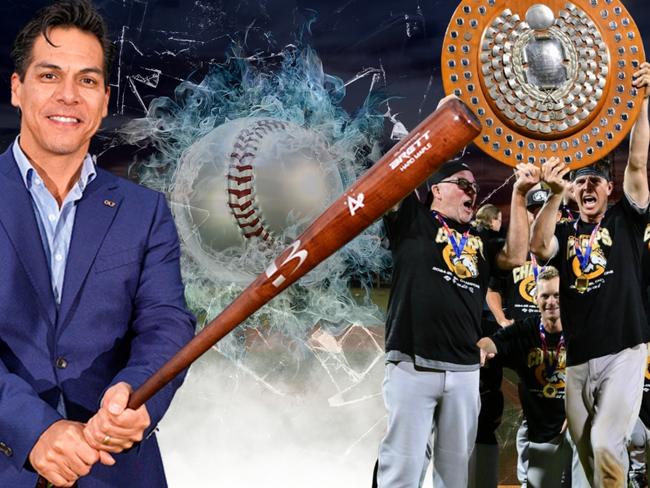
Sport
Don't miss out on the headlines from Sport. Followed categories will be added to My News.
One of Australian sport’s heavyweight figures has exposed the truth about the Melbourne Aces’ dramatic exit from the Australian Baseball League, claiming dealing with ABL head office was like “banging my head up against the wall.”
Multimillionaire Aces owner Brett Ralph – who is also a director at the Melbourne Storm, co-owner of Dick Johnson Racing and is on the board of the Sunshine Coast Lightning – said his frustrations grew over a number of years before a fateful board meeting earlier this year that he says left him no choice but to yank his team from the league, sparking fears over the competition’s survival.
The reigning champion Canberra Cavalry withdrew from the 2025/26 season three weeks later, citing uncertainty after the Aces pulled out. Meanwhile there are question marks over the Sydney Blue Sox, who currently don’t have an owner.
Despite the ongoing turmoil, ABL General Manager Paul Gonzalez has hit back, and promised the league will go ahead with just four teams instead of six for the 2025/26 season.
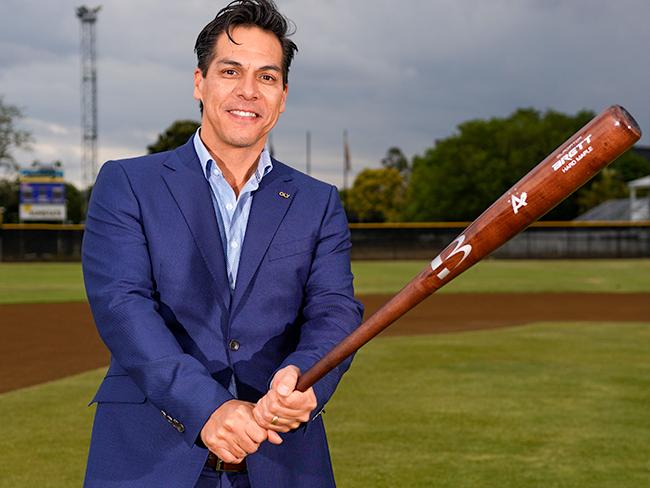
“The feeling is pretty positive and as a board, we’re absolutely one hundred percent committed to the Australian Baseball League for 2025 and 2026,” Gonzalez, a 2004 Olympic baseball silver medalist and current President of the Queensland Olympic Council told Code Sports.
“It’s full steam ahead, and we’re pressing to have a schedule out by July.”
Ralph is blunt in his response to the ABL boss.
“I don’t spend a lot of time paying attention to statements made by Paul Gonzalez,” he told Code Sports. “That’s on the record.”
WE’RE OUT
The founder and managing director of Jet Couriers, Ralph has sponsored the Aces since 2011, and bought the side in 2019, but says his frustrations with ABL head office grew every year.
With extensive experience in owning and running sporting franchises in the Australian market, Ralph has clear visions of how he wants to promote the game and his team.
He is adamant the ABL head office’s approach didn’t align with his own, including marketing and promotion, sponsorship, broadcast and funding.
“I felt that they were too focused on the heady, bureaucratic issuing of penalties instead of focusing on the big picture,” Ralph said.
“It felt like every time we had a difference of opinion in the way in which the league was being operated, it felt like we got no consideration at all.
“We just weren’t getting anywhere, I felt like I was banging my head against the wall and we made the decision to go our own way.”

Ralph says he pours a million dollars of his own money into the Aces with little to no return, and would often give financial support to other teams in the league.
“We believe that we were doing an excellent job of promoting the sport and making it bigger,” he said. “We sold more tickets than the next two most popular teams combined last season.
“Sponsorship was up, broadcast was up.
“But it felt like the league was continuing to make decisions that were pushing against all the things that we were doing.
“Every initiative we took on, they found a way to make it harder.”
GONZALEZ HITS BACK
Gonzalez denies Ralph’s claims.
In fact, he argues teams are given incredible freedom to make all of their own decisions.
Every ABL franchise pays a yearly $100,000 licensing fee, which mostly goes towards travel and logistics costs, while each individual team has nearly complete control over their operations.
“They are their own entity, and the license gives them full rights to commercialise their brand,” Gonzalez said. “They can run holiday camps. They can leverage investment through international relations.
“They can sell tickets, merch, corporate sponsors.
“They can set asset value within production. They own them 100 per cent.
“For any team in the ABL landscape, how you monetise your brand is at your discretion.
“They control their business plan and their outcomes. Not the league.”
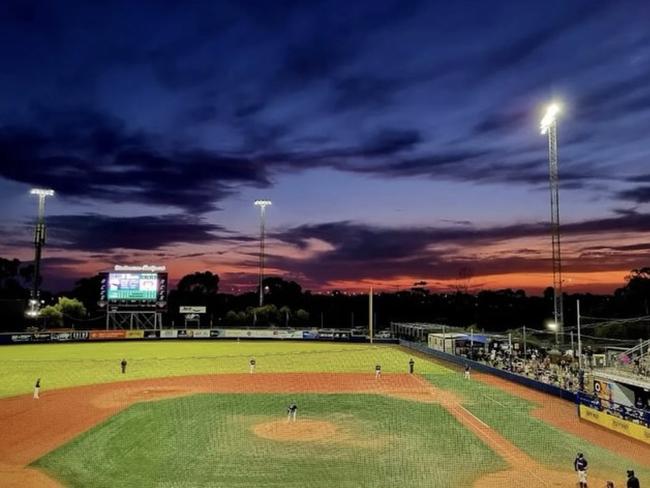
The ABL has also built a website for stats and data collection, as well as an OTT platform for video content and streaming.
Each team in the league incurs production costs when broadcasting games, but has complete control over how the video content they capture is commercialised.
Teams can sell ad slots in broadcast and can sell digital assets like home run highlights to sponsors.
“We provide all the data reports to each team, so they can go back to their partners and say, ‘You gave us five hundred grand, or two hundred grand, this is the data collection of what we did,” Gonzalez said.
“We can individualise it for each team because we’ve collected the data in the back end.
“We can extract ticket reports too – that’s all centralised. All the data collection they need for their partnerships is available.
“We’re not going to put restrictions on any team on commercial return.”
THE HEALTH OF THE LEAGUE
Despite the seismic shock of seeing Melbourne withdraw from the league, Ralph and Gonzalez both deny any bad blood between the team and the ABL, or between them personally.
Gonalez says the Sydney Blue Sox are set to land a new owner soon, and, despite general doom and gloom, is bullish on the league’s future.
He points to the fact that teams in the biggest leagues in the world, including the MLB, Japan’s NPB and Korea’s KBO all send multimillion dollar prospects to play in the ABL during the offseason.
Meanwhile, former Sydney Blue Sox second baseman Travis Bazzana was selected first overall in the 2024 MLB draft by the Cleveland Guardians.
“The standard here is world class,” Gonzalez says. “Within two years, some of those players (who play here) are playing on the biggest stages in the world and are rock stars.
“Australia is the biggest development model in the world right now.”
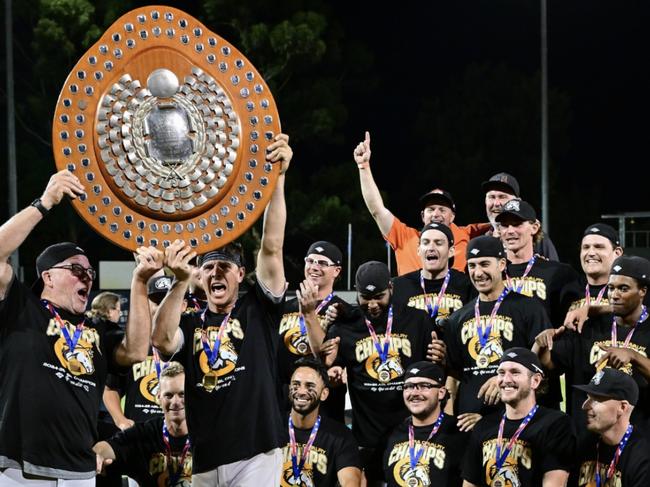
THE FUTURE
Gonzalez hinted that a Canberra team could be part of the league again in the future, and while the next season will only feature four teams, he’s confident it will grow beyond that.
“We’ve given them the vision of where the league will go in the future,” he said. “From our perspective, it’s far from over.
“It’s just the beginning. This is a very good reset to determine who wants to continue on the journey.”
The Aces will now participate in the invitational KBO Fall League in October.
The team will then host international teams at its Melbourne Ballpark home ground in January and February.
There have been rumours of a rebel league being formed, but Ralph says he isn’t part of those talks and doesn’t think there’s scope for two competitions.
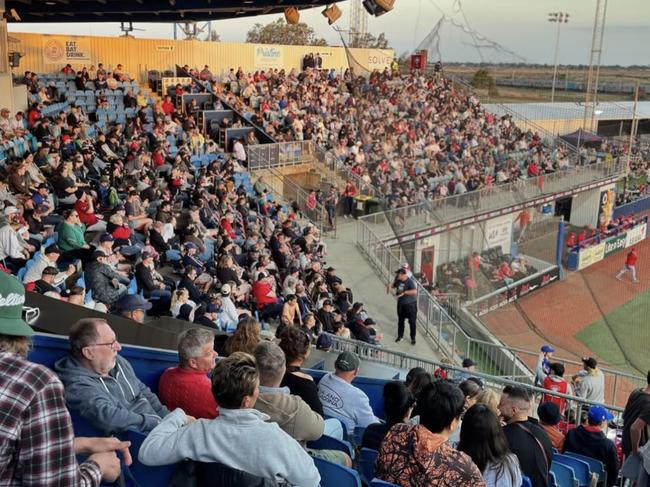
“It’s difficult to be optimistic about a national league when virtually every team is in some form of financial strain,” he said. “Sydney have been through three owners in the last five years.
“Brisbane’s on its third ownership group in five years. Canberra’s had three ownership groups and doesn’t have the finances to keep going. The Perth team is for sale.
“I think we’ve missed the opportunity to make the Australian Baseball League a viable league, and unfortunately we’ve got to the point where there are very few people left who are willing to continue to invest the sort of money necessary.”
And as for rejoining the ABL in the future?
“Look, you never say never, but there would need to be some massive changes,” he said. “To me that looks extremely unlikely.”
More Coverage
Originally published as What is the future of the Australian Baseball League? Teams walk out as fiery feud splits the sport




